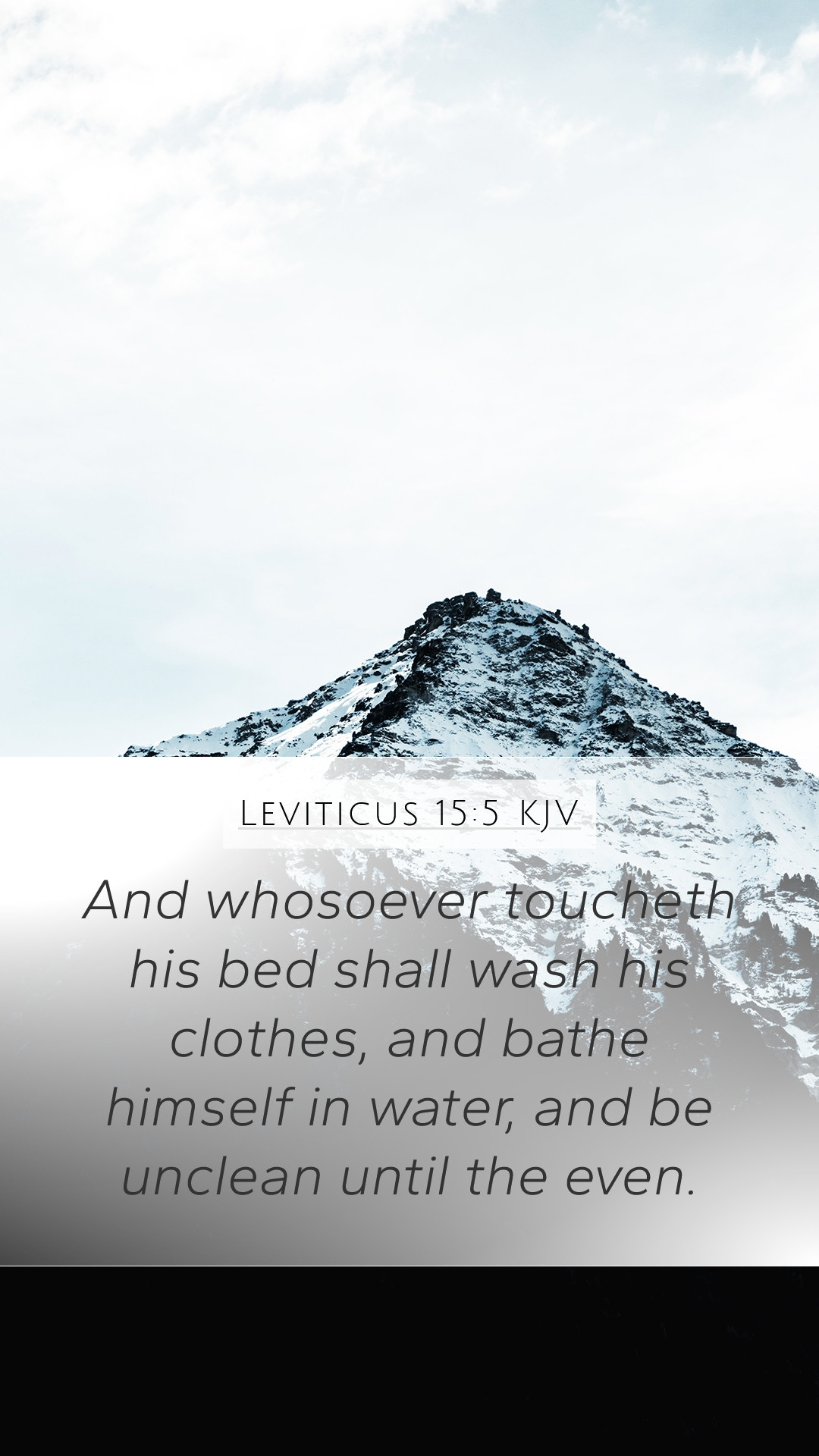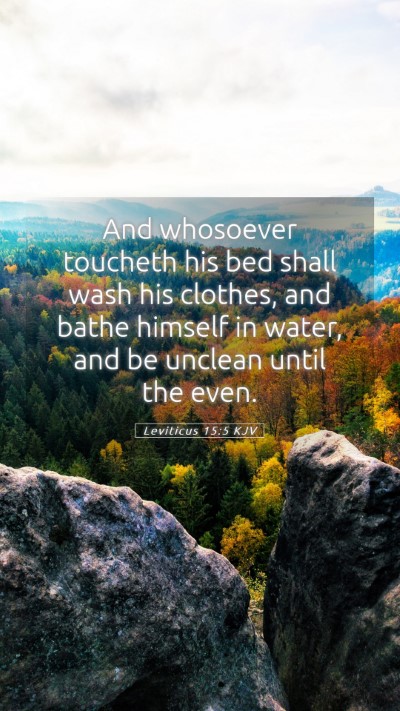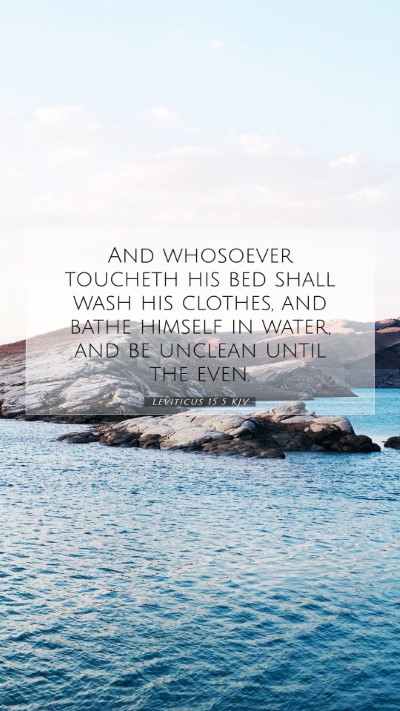Understanding Leviticus 15:5
Leviticus 15:5 states, "And whosoever toucheth his bed shall wash his clothes, and bathe himself in water, and be unclean until the evening." This verse is situated within the broader context of detailed laws regarding bodily discharges and their implications for cleanliness and ritual purity in ancient Israel.
Bible Verse Commentary
This verse outlines the requirements for ritual purity when a person is contaminated by contact with someone who has a certain bodily discharge.
Insights from Public Domain Commentaries
-
Matthew Henry:
Henry emphasizes the importance of ceremonial cleanliness in the Mosaic law. He notes that such laws illustrate God’s holiness and how sin affects relationships, both earthly and divine. The cleansing rituals serve as a reminder of the need for purification in more than just a physical sense.
-
Albert Barnes:
Barnes explains that the laws regarding ceremonial purity are designed to promote holiness among the Israelites. He points out that cleanliness is not merely a physical state; it has deep spiritual significance. Touching anything associated with impurity requires individuals to take careful actions to restore their ritual status before God.
-
Adam Clarke:
Clarke elaborates on the necessity of washing and the symbolic meaning behind it. He indicates that this requirement serves as both a physical and spiritual cleansing. The washing of clothes and bathing symbolize a broader call to repentance and the restoration of fellowship with God.
Interpretation and Application
This verse highlights the significance of maintaining cleanliness and purity in the lives of the faithful. In our contemporary setting, it can be viewed as a metaphor for the spiritual cleanliness that believers should strive for, reflecting on how their actions can affect their relationships with God and others.
Applications in Daily Life
- Practice spiritual introspection and cleansing through prayer and confession.
- Understand the implications of our actions and how they impact our relationships with others.
- Acknowledge the need for God's grace in achieving true purity.
Additional Insights on Biblical Exegesis
Through the lens of historical context, we see that for the Israelites, these laws were vital in a community that valued holiness. They required physical actions that served as reminders of their relationship with God, illustrating broader spiritual truths.
Related Bible Cross References
- Numbers 19:11-22 - Discusses further details about purification after touching a dead body.
- Leviticus 11 - Outlines laws about clean and unclean animals, emphasizing holiness.
- 2 Corinthians 7:1 - Encourages believers to cleanse themselves from impurity for a holy life.
Conclusion
Leviticus 15:5 provides a critical understanding of cleanliness and holiness in the life of an Israelite. It combines practical lifestyle guidelines with deep spiritual insights, which continue to resonate within theological discussions and personal faith practices today. Understanding such verses helps enrich Bible study insights for individuals and groups alike.


